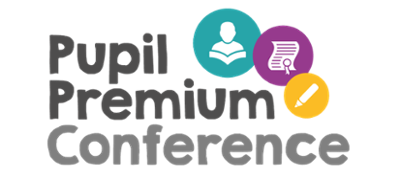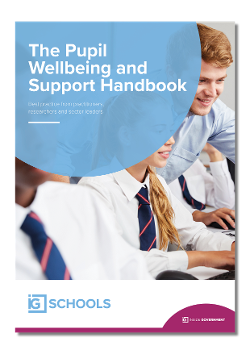The IG Schools team recently conducted research with education leaders and practitioners across the country, including Assistant and Deputy Heads, SENCOs, Pupil Premium Co-ordinators and support staff.
We discussed a number of challenges and key concerns the sector is facing and explored priorities for the new academic year, and beyond, as Pupil Premium allocations are re-examined, and new funding becomes available in the form of the government’s £1 billion catch-up spending, in light of COVID-19.
Read on to learn more about the core findings and examine how your current approach to Pupil Premium aligns with that of colleagues across the sector.
Focusing on Mental Health and Wellbeing
A key priority which arose time and time again through our research this year was the focus on supporting the mental health of children and young people, helping them to cope with the impact of this year’s unprecedented events. Whether it relates to the difficulties of learning outside of the classroom, the stress of the exam fiasco, or dealing with bereavement, anxiety or loneliness, pupils have faced a myriad of challenges this year. Inevitably, as pupils who experience some level of disadvantaged, those eligible for Pupil Premium are likely to have suffered more than most.
As such, many school leaders and support staff have acknowledged the importance of helping to cultivate positive mental wellbeing and emotional resilience through the autumn term this year, especially in those first few weeks. At a time of unprecedent turbulence, helping provide a sense of stability for young people has been considered of greater value than diving back in with academic activities.
Of course, now that we are further into the term, and facing more months of local and national lockdowns, plans for academic support are also needed.
Recovering and Re-igniting the Curriculum
Over the summer, unable to take much of a break, staff were busy preparing for the catch-up that would be required for pupils who were unable to attend school at all during the initial lockdown period this year. In addition, there were of course vulnerable pupils who continued to attend a more streamlined school setting with the local Hubs set up around the country, but the learning opportunities within this structure were understandably limited.
Different children in different contexts have had different levels of support, and access to learning materials and resources, which have affected how and when they’ve been able to engage with blended and remote learning practices. On the whole, staff we spoke to have been very aware of the individual situations and what pupils have access to (though were still acutely aware of wanting to improve their outreach activities with both pupils and families). But in preparing for them to return to school, planning on how to discover exactly what has been learned, and therefore what curriculum delivery plans should be made, was a struggle for many.
A COVID ‘recovery plan’ has been something school leaders have been developing and adapting, starting with conducting baseline assessments for pupils in September to gauge levels of knowledge and understanding in various subjects, or the developments in key skills such as literacy and numeracy. Being able to measure progress this year is more important than ever for curriculum planning, especially for pupils already experiencing a level of disadvantage. However, with an increased number of pupils having been defined as disadvantaged this year – outside of the usual definition of Pupil Premium grantees or Looked After Children (LAC) for example – preparing and allocating resources for curriculum delivery has been extremely difficult.
Differentiating between levels of progress and subsequent future needs is more important, but more complicated, than ever. The likelihood is that recipients of Pupil Premium are the children who will have benefitted the least from online learning, but with the impact of COVID-19 set to last for months to come, schools will need to continue to find ways to make this approach work for every child.
Funding Opportunities
School leaders and Pupil Premium or SEND Coordinators are well versed in allocating per-child funding entitlements for activities that support academic progression, in a way that supports individual needs. But when most, if not all, children are in need of academic support, how should funds best be used? What interventions are most effective?
Regular attendees of the annual Pupil Premium Conference are always interested in hearing the latest research and evidence around ‘what works’, and hearing about innovative interventions for pupils at different ages and stages. But this year, interventions are needed for a much larger cohort of pupils, and so staff are in search of new kinds of research around supporting pupils who aren’t typically in need of such additional help. While some evidence is beginning to emerge through bodies such as the EEF, it is still early days in terms of understanding how funds are best allocated, and which interventions can be best adapted, or scaled up.
Of course, financial help this year has also come in the form of the government’s £1 billion catch-up funding, split between the £350 million National Tutoring Programme, and £650 million for direct use by schools. But how is this best utilised alongside the Pupil Premium? This is something schools are still exploring, and deciding what works best for them in their specific contexts. While the Premium is usually used for a combination of academic support and wider enrichment activities, the intention of the COVID catch-up fund is to focus predominantly on the academic needs of pupils, but may also be used for enhancing access to technology, or some extended support through the summer.
Deciding how to balance such activities, after first determining what interventions are actually required, also then leaves schools with some confusion around the level of detail and breakdown required for reporting how Pupil Premium allocations have been spent – and crucially demonstrating the tangible outcomes that have emerged as a result.
Delivering Interventions
Once interventions have been determined, funding decisions also affect, and are affected by, the personnel required and/or available to deliver these, presenting both a challenge and an opportunity for schools. Support staff, including teaching assistants (TAs) and higher level teaching assistants (HLTAs), are often front and center of interventions for disadvantaged pupils, supporting academic and enrichment activities. But for these staff, whose roles have altered and adapted to changing requirements perhaps more than most this year, reported having differing levels of leadership and planning responsibilities when it comes to the activities and support they offer.
This was also acknowledged by senior leaders, some of whom prefer to keep such organisation fairly centralised within a school, and maintain a top-level management, while others may allocate funding from this perspective, but in conjunction with delivery-focused staff, who then take on ownership of utilisation of spending and resource management, as well as responsibility for the impact of interventions.
Some staff we spoke with this year highlighted the ongoing need for perceptions around support staff, and teaching assistants in particular, to change, and for there to be an enhanced understanding of their valuable skills and abilities, especially in relation to Premium recipients. This year, while some TAs have been tasked with lesson delivery for a school’s most vulnerable pupils in a Hub setting, others have been required to take on the additional cleaning responsibilities.
Both roles are of course vital, but with all pupils needing as much academic support as possible, there was a feeling among those we consulted that any staff capable of facilitating learning should have their full efforts directed on delivering activities related to that.
For disadvantaged pupils and Pupil Premium in recipients in particular, having TAs and other support staff to lean on, for their academic and social and emotional needs, is of crucial importance this year. But other pupils will of course benefit from their help too, which is why questions were being raised early on as to whether schools could use the £650 million catch up funding for funding additional TAs.
As we now understand, this portion of the catch-up fund is for school leaders to use as they best see fit, and with additional support provided through the National Tutoring Programme as well, hopefully a reliance on support staff is both viable and helpful to all pupils this year.
Next Steps
With so many questions left unanswered, and much to be determined about what is needed, what works, and indeed what the future holds for schools and pupils up and down the country, leaders, teachers and support staff are still very much in search of answers, best practice, evidence of what works, and learning from colleagues across the sector.
At last year’s National Pupil Premium Conference 2020, the Department for Education delivered updates and guidance on the catch-up funding, and reporting on Pupil Premium spending in light of changes this year, while the Tutoring Association and My Tutor will be delivering practice advice around the National Tutoring Programme.
Alongside the case studies and expert advice from specialists in attainment and inclusion at primary and secondary level, in line with the needs of the sector this year the Conference featured a dedicated teaching assistants stream to analyse methods for effective deployment of crucial support staff, and how to ensure TAs are effectively utilised as part of COVID recovery plans.
A number of special schools also featured on the agenda, to encourage learning between these settings and mainstream providers, as a number of those who engaged in our research noted the likely lessons that can be learned, and perspectives that can be shared, between these contexts to help ensure outstanding support for every pupil during the coming months.
This article was written by Lauren Powell, IG Schools Portfolio Lead
Learn more at this year's National Pupil Premium Conference which will include key insights from the DfE, Sir Kevan Collins, Rt. Hon David Laws, Jean Gross CBE and many more taking place on the 13th & 14th July 2021. Click below to find out more:
Further advice and guidance is also available now via our IG Schools Pupil Wellbeing and Support Handbook.

